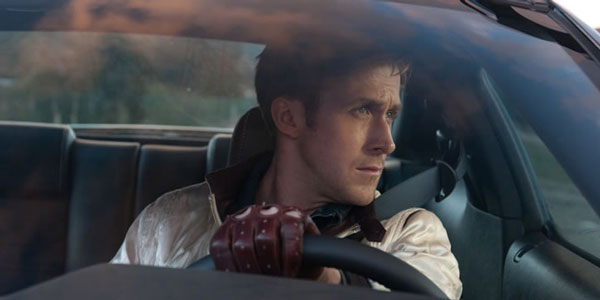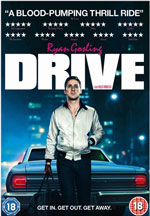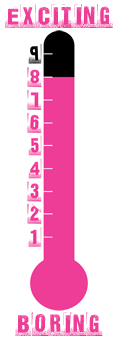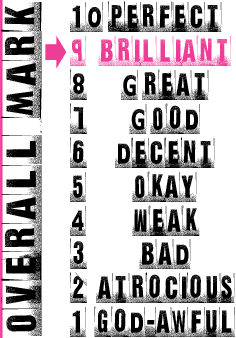
Director: Nicolas Winding Refn, Ryan Gosling
Running Time: 96 mins
Certificate: 18
Release Date: January 30th. 2012

The release date of Drive deliberately seems to have set in the hope the movie would pick up a few Oscar nominations. While it only managed one – for Sound Editing – the film might well have been helped by the outrage many have expressed about the Academy pretty much ignoring it.
Ryan Gosling plays a Hollywood stunt driver, mechanic and getaway driver who strikes up a friendship/chaste romance with a young mother called Irene (Carey Mulligan), whose husband is in prison. When the hubby is released from jail, the driver agrees to help him with a robbery, in the hope this will ensure Irene and her son remain safe. However when things go wrong, it sets off an increasingly violent chain of events, with the driver’s life and that of everyone around him at threat from gangland heavies, including the brutal Nino (Ron Perlman) and gangster turned movie producer Bernie (Albert Brooks).
It’s a fairly standard story, with an archetypal nameless hero who gets caught up in an ever more dangerous situation and who wants to save a damsel in distress. In the Q&A on the DVD#s special features, director Nicholas Winding Refn compares it to a Grimm’s Fairy Story, in which violence comes from trying to protect a very pure love.
What raises it above the purely pedestrian is a mix of the technical and artistic. The acting is pitch perfect, with Ryan Gosling in particular giving what initially seems a ridiculously understated performance, but which uses stillness to reveal great power when he actually does act. The title of the movie doesn’t refer just to Gosling’s character and his job, but the single-mindedness he needs to keep moving forward as the situation gets ever direr. Carey Mulligan radiates innocence in a way that only she can, Ron Perlman is as electric as always as a Jewish gangster and Albert Brooks plays against type as a man who’s not scared of committing horrible violence.
The performances come together with an extremely well thought out script and direction. Drive takes a comparatively simple story and turns it into an existentialist drama with emotional complexity, which grips the audience and occasionally shocks them with incredible violence. Indeed it’s the exploding skulls and blood-letting that’s probably the reason the Academy largely ignored the movie (Oscars voters always have been squeamish about violence).
Technically the film is a knockout, looking incredibly stylish and wearing its influences on its sleeves. Refn creates wonderfully layered shots that look incredible and help drive forward the narrative, while soaking the audience in a world that’s both modern and very retro. The Sound Editing Oscar nomination meanwhile is well earned, as the film has a brilliant use of audio to create an ever more intense sensation. In fact it is perhaps the sound more than anything else that ensures the movie grips you by the throat and won’t let go.
It’s easy to see why the movie has gained a hell of a lot of fans. Some may never get past the wince-inducing moments of violence – which are extreme and tend to come with little warning – but others will appreciate how they add to the intensity and power of the movie.
The main special feature is the aforementioned Q&A With Nicholas Winding Refn, filmed at a UK screening. At 40 minutes long, it offers plenty of info and will be appreciated by fans of Drive and Refn’s other movies (such as Bronson and Valhalla Rising).
Overall Verdict: A bullet of a movie, pounding forward with thought, action and emotion, which makes a big impact on the audience.
Reviewer: Tim Isaac





Leave a Reply (if comment does not appear immediately, it may have been held for moderation)